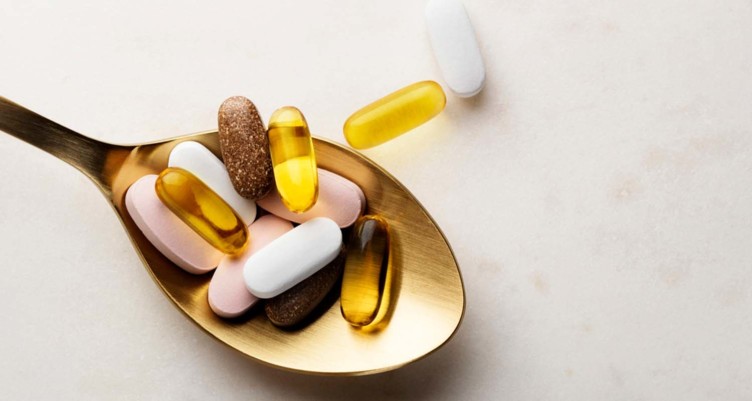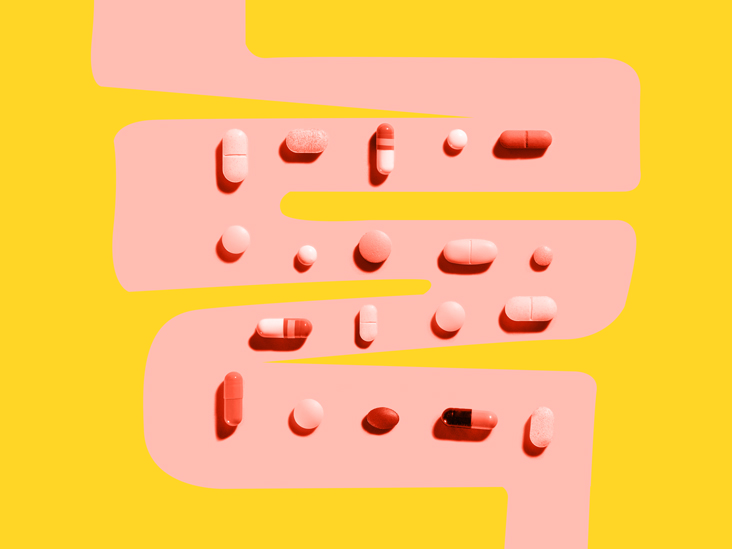A decent probiotic supplement may be found at a health food shop, but because everyone’s microbiome is different, ask your doctor which types of cultures are best for you. Probiotics are full of live bacteria that will help ensure your gut is colonized by mostly beneficial microbes. Prebiotics are indigestible fibers that are fermented in the gut by beneficial bacteria (probiotics) that maintain the balance of the microbiome.
Probiotics are live bacteria or yeast in fermented foods that settle in the gut after consumption and improve health. These foods and supplements contain live bacteria that benefit our health.
The bacteria in the gut constitute a very important ecosystem, and if disturbed, it can lead to anomalies in its composition and diversity. Probiotics have been demonstrated in studies to help restore healthy gut bacteria levels, which protect us from inflammation.
Probiotic foods contain a healthy microbiome that can further alter the microbiome. You can also support your microbiome by adding probiotic-rich foods, such as natural yogurt, kefir (fermented milk), or kombucha (fermented tea), all of which contain live microorganisms. You can also eat foods like sauerkraut, sauerkraut, and kefir to make sure you’re getting enough live crops to keep your gut healthy.
Numerous studies have shown that vegetarian diets can benefit the gut microbiota. It has been observed that people who eat a diet rich in fruits and vegetables are less likely to develop disease-causing bacteria. A well-balanced diet rich in fruits and vegetables gives fibre to the body, which promotes the growth of beneficial bacteria and intestinal health.
Whole and fresh vegetables, beans and legumes, and various fresh fruits are food for the bacteria in our guts. Without supplements, fortified foods or microbiome testing, you can grow diverse prebiotics for gut health.
People who ate fermented foods such as yogurt, sauerkraut, kimchi, a yoghurt-like drink, kefir, or kombucha (fermented drink) increased their gut microbiome diversity every day for 10 weeks in a study conducted at Stanford in August 2021. People who had greater amounts of healthy blood lipids had more microbiome variety and beneficial bacteria, even if they did not consume a high-fiber diet, according to other research.
Ultimately, it affects our health by reducing healthy gut bacteria and increasing the risk of weight gain, metabolic problems, chronic inflammation and disease. A diet rich in inflammatory foods, exposure to environmental toxins, and stress can fuel bad bacteria in the gut. On the other hand, healthy gut bacteria protect you from disease, curb inflammation, and even contribute to your mental health.
In return for food and a place to live, our gut bacteria protect us and boost our cognitive performance; utilise these recommendations to feed them properly. Certain foods and healthy lifestyle habits can improve gut health naturally.
Research shows that fiber is a plant-based nutrient that reduces the risk of metabolic disease by stimulating the growth and diversity of beneficial bacteria in the gut. Sweet potatoes, spinach, beets, carrots and fennel are rich in fiber, which naturally improves bowel function. Many of these high fiber foods are also prebiotics, and while they cannot be digested by our bodies, the bacteria in our gut can feed on them and generate some beneficial bacteria that live in our gut biomes.
Eating foods that help maintain swelling and inflammation in the gut will also benefit the gut microbiome and digestive lining. You may also help your immune system by maintaining your gut microbiota, which is a crucial line of protection against infectious illnesses, by consuming nutritious foods. However, if you’re heading to your local grocery store, it’s worth considering which food choices to keep your immune system and gut health at their best. You, not just the coronavirus.

Good gut health means taking care of your gut microbiome—the bacteria, fungi, viruses, and tiny organisms that live in your body and help break down food—as well as the cells and functions of your gastrointestinal system. The gut microbiome plays a crucial role in general human health by metabolising nutrients and medications, generating key vitamins and minerals, and digesting our food, in addition to establishing and preserving our immunity.
One of the main connections between the gut and the brain is the food we eat and how it is digested by the gut bacteria. The gut is a highly specialized tissue whose job it is to absorb nutrients from food without sucking in pathogens that can lead to inflammation, autoimmune conditions, or disease.
Maintaining a good balance of bacteria in the gut is important for overall health. Gut health and maintaining the proper balance of these bacteria are essential for physical and mental well-being, immunity, and more. To help you, we’ve compiled a list of gut-friendly foods, probiotics, and drinks, and other gut tricks to help you take control and improve gut health.
If you’re looking for ways to naturally improve gut health, you should focus on a healthy, varied diet, as well as maintaining mental health, exercise, and rest. To help your body fight off pathogenic bacteria and boost gut immunity, stock up on the best teas for gut health and eat a diet low in sugar and high in probiotic foods and prebiotic fiber. Although there is no simple way to restore bacteria in your stomach, eating a diet rich in prebiotics, probiotics, fermented foods, high fibre foods, and adding gut health powder in your meals can help your digestive system feel happy and healthy.
Packed with beneficial bacteria that promote gut health, this fermented tea is perfect to incorporate into your daily routine as a natural way to improve bowel and digestive health. While all three are nutritious meals, fermentation aids in the mixing of intestinal bacteria, resulting in a healthier gut biome.

